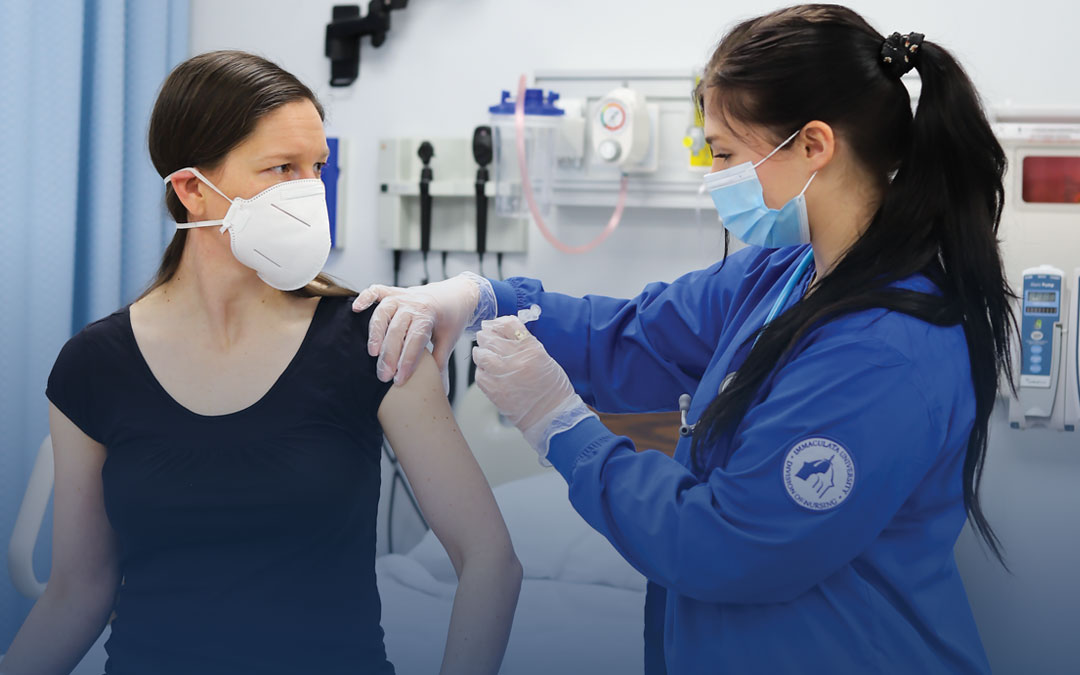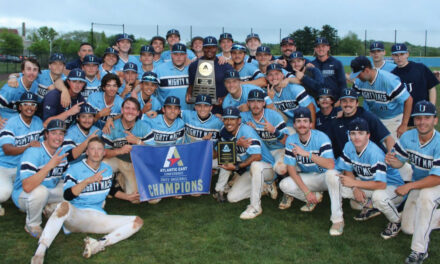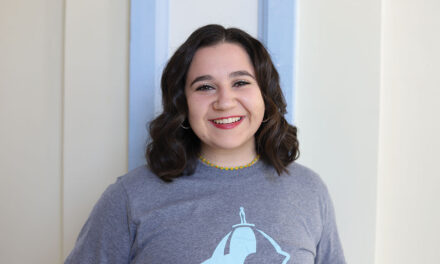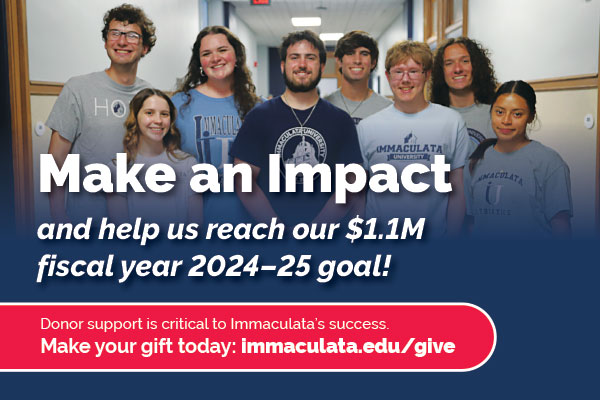The pandemic is less severe in some ways now, but we may still be in for more variants and surges. And the past two years have pushed health care professionals, especially nurses, to their limits. Here’s how they’re staying strong, and how Immaculata’s nursing faculty are supporting students and preparing them for future challenges.
“Nurses really have to be resilient,” says Celina “Lee” Siwula ’92, ’14 M.S.N., ’20 Ed.D., assistant professor and director of Immaculata’s pre-licensure Bachelor of Science in Nursing. Regardless of how the pandemic continues to unfold, students have to be aware that they’re entering a high-stress profession. “We never tell them it’s going to be easy,” Siwula says.
Nevertheless, she exudes enthusiasm for her work. “I’ve been in it for 43 years. There’s nothing I’d rather do!” she says. “Teaching students good self-care behavior that increases their resilience will help them,” notes Pam Hudson, D.M., associate professor of nursing and director of Immaculata’s Master of Science in Nursing program.
It’s not unusual for nurses to get exhausted and retire or change careers. Hudson says the nursing shortage was already a problem pre-pandemic, and COVID only exacerbated it. According to a 2019 study by the Nursing Advisory Board, half of new nurses leave the profession in two years.
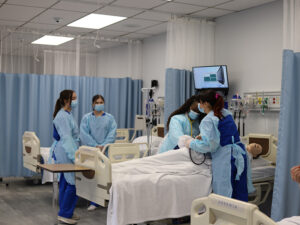
Students at work in the nursing simulation lab.
As a result of this and other factors, Hudson explains, “there’s no fluff in hospital staffing.” When she meets with local chief nursing officers, all of them report struggles in keeping their floors staffed. They offer high salaries, up to six figures, and sometimes bonuses to attract workers willing to put in grueling 10-12-hour shifts, at times seven days a week.
COVID has taken its toll not just on nurses’ time and energy, but also on their emotions. Early in the pandemic, Hudson comments, it wasn’t unusual for her M.S.N. students to lose as many as two or three patients a day in a 15-bed unit. Sometimes they were the only ones present with dying patients, whose families had to stay home to avoid contracting the virus themselves.
Even a seemingly small thing like wearing extensive protective gear has been a challenge for nurses, Hudson points out. Respirators block nurses’ faces, and gloves interfere with simple physical contact. “There’s a real sacred space between a patient and a nurse. And things that are put in between the patient and the nurse make it difficult for that relationship to flourish,” Hudson says.
To help her students cope, Hudson asks them how things are going at work and empathizes with them. “I really believe that letting them talk about it and then hearing what their peers are saying helps to build up their resilience.” They realize they’re not alone, and their peers may have ideas about how to handle certain issues.
“You can’t care for others if you can’t care for yourself.”
Venus Smith, associate faculty member, also works to form connections with her undergraduate students. “I’ve been blessed to have the ability to be a role model and help students build resilience by creating a positive environment conducive to their learning and building strong, supportive relationships,” she comments.
Siwula shares stories with her undergraduate students about her own nursing practice and how she has coped with adversity. She learned to do her part for her patients and wait until she got home to let the tears flow. “You’ll get stronger, and you can continue to do what you have to do,” she tells students. In their last semester, Siwula’s students participate in immersive clinical rotations to get real-life experience working alongside veteran nurses. The students put everything they’ve learned to work, from clinical knowledge to emotional fortitude.
Siwula frequently discusses burnout with her students and shares self-care practices, such as mindful breathing, to decrease anxiety. She urges students to schedule time to rest and do “whatever brings you peace, keeps you positive and makes you feel like you’re not losing yourself,” she says. “You can’t care for others if you can’t care for yourself.”
At some point during students’ rotations, Siwula notes, “a lightbulb goes off. You see them suddenly grow.” She loves it when students tell her, “I knew what I was doing! I made a decision on my own, and the clinical instructor nurse said, ‘That’s a great idea!’”
Siwula regularly invites nursing alumni to talk to current students, and this year, three alumni shared about their jobs in high acuity settings. They acknowledged that nursing is a stressful career, but it’s still one they love. Emily Cosgrove ’21 was one of the alumni on the panel. “I have found a lot of motivation in learning to celebrate the small victories, whether it was my first successful IV insertion, a patient who was very ill that got to go home, or simply a coworker telling me that they were proud of me,” she reflects. “I will continue to encounter challenges in my work, but I am confident that I will continue to find parts of my work to motivate me and help me to overcome them.”
“It’s not easy, but it’s so worth it,” Siwula tells her students. For Siwula, Hudson, and their students, the hope outweighs the challenges of nursing. “Here we are, still standing and still not wanting to do anything else,” Siwula says. “This is our calling.”

